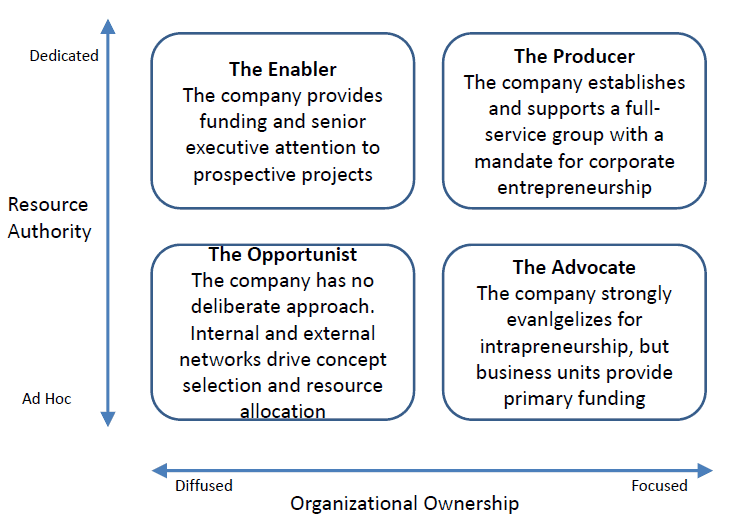Task 1:
LO1 (M1, D1): Explore and illustrate the range of venture types that might be considered entrepreneurial
P1: Examining the different types of entrepreneurial ventures and how they relate to the typology of entrepreneurship
Entrepreneurship is a developing culture that initiates the need of doing business amongst the new business-oriented new comers and future entrepreneurs. It is very much significant that the need of the economic development is a hiking aspect that seeks to strive the development in the sector of self-owned and emerging business bodies be it small scale or large. The entrepreneurial development is an essential factor on which depends the actual purpose of regional growth, industrial development, and generation of employment. It is to be considered that the entrepreneurs as seeds of the development of the industry and therefore, apart from growing up owned capitals, it gives a huge opportunity for the other common people to get into employment that further result in the development of the economy of the country. The per capita income, standard of living and revenue collection of the government increases with the increase in the industrial development of the country via strategic business development.
An entrepreneur is a word that is derived from the French language, a verb ‘enterprendre’ which means ‘to undertake.' Enterprises are undertaken by entrepreneurs, and the process of creation is termed as entrepreneurship. The motive of entrepreneurs is to find something new and innovative abide by its form of business for serving better and generating higher profit possibilities along with taking up different risk factors.
Entrepreneurial ventures are focused on the services advisory for the mid-stage and early staged companies. Venturing means to expose out in risk zones and entrepreneurial ventures thus, relates to the fact that business persons risk their opportunities in the open market and carry out strategic planning to make their enterprise survive and come out with flying colours. The main purpose of assessing the different type of ventures is to help to modulate and regenerate business models and development in the business objectives. The culture and structure are the essential factors on which the business stand and therefore, the development of the overall business affairs. The role of the ventures varies with the stage of the company and its economic position.
The last few decades have been an emerging and enthusiastic period for the development of the entrepreneurship, and thus it is significant to the research field of relevant areas. Accumulative fragmentation is the term that entrepreneurship owned. Creation and innovation are the soul prospect of the entrepreneurship that helps to develop the facilities for the growth of the economy and development of the markets and industrial sector with the help of new technologies and associated parties. Entrepreneurial processes and activities give rise to the new market and the level of sector wise implementation of ideas that helps to motivate the development of the business ventures indifferent forms and with different aspects. There is mainly the corporate entrepreneurship that leads the market and has different significance. Categorising the types of entrepreneurs, we can classify many different forms of them like innovative entrepreneurs, imitating entrepreneur, fabian entrepreneurs, drone entrepreneurs and social entrepreneurs.
There are many entrepreneurs who are well defined with the individual terms. They are –
- Serial entrepreneurs: A serial entrepreneur is a person who comes with a unique methodology for the development of his or her organisation. A serial entrepreneur is not only just uses to do things himself or herself but also a person who takes innovative ideas from the working staffs of the respective organisation. In fact, the entrepreneur leads the whole team by distributing different responsibilities to respected employees.
- Growth entrepreneurs: A growth entrepreneur's role can easily be defined with the contribution of that person to a firm. This kind of entrepreneurs uses to take risks to develop the different sectors of a company whether it is skill or about the investments. But many times the risky steps bring a vast change in the marketing segment.
- Corporate entrepreneurs: In the true sense corporative entrepreneurs play the role of a sailor who takes their companies to another level by leading from the front. This kind of entrepreneurs makes profitable strategies to make the organisation in the limelight and also to make their products different from the other companies.
- Social entrepreneurs: The contribution of social entrepreneurs differ them from the other entrepreneurs. The social entrepreneurs use to take some remarkable steps in which education, social help, and unemployment are included. The ideas seem to be non-profitable, but it never brings draught in the progress of the company.
P2: Exploring the similarities and differences between entrepreneurial ventures
The concept of the business strategy and formation of entrepreneurship have evolved and changed over the past few decades and to highlight the differences of the different entrepreneurial ventures. The activities of entrepreneurial processes are to venture activities and innovation for an establishment of the leading products and services. The differences and similarities of the entrepreneurial ventures can be stated and explored keeping in mind the variations of the thoughts and perspectives of the different entrepreneurs. The innovative entrepreneurial venture seeks to develop new technologies for the products and markets. This involves the inventing as well as discovering new things to make faculties of creative thinking who evolves and evaluates the market opportunities. Assuming the risks is the most important part of the hands of these creative ventures to assess the prospects of the system. Research of materials matters in any initiative and projection works that facilitate the researcher, here the entrepreneurs to gather a good knowledge of the market and their needs. The social entrepreneurs are the most innovative form that transforms the various educational, training and human resource fields into productive output keeping in ethical issues and regulations. This system not only fosters the growth of the economy system of the country but also in health, rights and environment development of the worker and other humans. This form of entrepreneurship undertakes the poverty alleviations seriously and extends their objective to do betterment with the zeal of business practices to overcome the traditional drawbacks.
The diversified culture of the human society makes a difference and conflicts in the well-being and development of the societal affairs. However, the entrepreneurial sector seeks to keep all these matters aside and focus on the development of the industry and seeks to bring forth all the particles of society and evolve. The innovation management has increased the limitations of the accumulated variety of disciplines that include management of science, sociology, geography and psychology of the limited convergence of the field and its knowledge. The innovation of the commercialization and invention does not make any difference for the variety of the ventures, but the similarity carries a common goal for all and that creates the ultimate resolution of the intensity of this matter. The corporate activities of entrepreneurship include different stages of the decision of strategic planning and orientation of the creativity that includes processes, services, products, and innovation. There are four models of entrepreneurship as defined by Wolcott and Lippitz (2007). The corporation is differentiated by two dimensions that are resource authority and organisational ownership.
The serial entrepreneurs use to set up something quite different businesses. Their concept keeps them totally apart from the other business. In this regard, it can be said that in the very beginning Orkut was the company who captured the throne of business regarding social networking. But its era comes to an end with the devastating entry of Facebook. Facebook, is not that company which captured the market instantly. The founders of this social site are a group of students of Harvard University. But the main man behind this is Mark Zuckerberg. Their assignment relating this site was not accepted at first. But later it casts an impact in the whole world with its innovative idea and usage.
On the other hand, LanaiBLO hair dryer is a serial entrepreneur product. The whole world knows the name of Phillips as one of the best hair dryers, but now-a-days LanaiBLO hair dryer has also captured the market.
This was not well known to the people, but in the present time many Hollywood celebrities are using and doing the advertisement for this product. A serial entrepreneurship comes from the zero to top place. This happens because of the quality and trust.

Figure 2: The four model of corporate entrepreneurship
(Source: Wolcott and Lippitz, 2007)
Task 2:
LO2 (M2, D3): Assess the impact of small businesses on the economy
P3: Impact of micro and small businesses on the economy
Small businesses have a higher chance of failure than the large business. People get frustrated due to this failure. But some small businesses survive and grow as well. That's why the small enterprises are known as the growth driver of an economy of a country. In the developing countries, small business enterprises are known as the most flourishing business (The E-myth Revisited, 2014). It creates employment, motivates people in start-ups, and generates income. Small business enterprises have affected the micro-economy of many developing countries by providing encouragement to social and political stability.
Small business enterprises are one of the important means of economic growth of a nation. Small business enterprises have a higher chance of contribution towards a gross domestic product, reduction in poverty, etc. (Tsuruta, 2016). Small businesses have a different management style than the large ones. They are as follows:
- Planning: It is involved in selecting the task that must be performed by the employees to achieve goals. Planning includes deciding the methods of performing a task and the time when they should be performed. Planning helps to achieve goals.
- Organising: After planning, leaders or managers assigns the tasks to the employees of the organisation. This is known as the second most important process of management. It is to be believed that if the tasks are organised, then the output of staffs helps to the success of the team as well as the organisation.
- Influence: This process helps to motivate, lead, and direct the staffs. If a business has influence in its management process, then the productivity of the business increases.
- Control: In this stage, the managers collect information about the recent performance of the employees, compared to their previous one. Managers also decide whether they can go for new goals or should stick to the previous plans.
Small business is known as the independent, self-operated enterprises. It is not dominant as the large ones (Tsuruta, 2016). Small businesses think about a particular standard of size regarding annual receipts and employees. Small business is managed by owners or part-owners in a personalised way. According to some recent studies, there is a lack of written evidence regarding measurable contributions provided by small business enterprises. Small businesses are involved in almost all kind of business sectors (Impact of contract bundling on small business concerns, 2009). The success of a small business depends on the environment in which they operate. Some external and internal factors affect the success of a small business and its impact on the economy. Internal factors are those which are controlled and considered to be decided within the organisation. Such as Lack of skilled labour, management inefficiencies, technical issues, etc. Whereas the external factors are those which are related to the micro-economy, such as: political, social, economic, environmental, technical and legal (Murthy and Paul, 2016). These are the external factors as they cannot be controlled. These factors determine the performance of a small business enterprise (Murthy and Paul, 2016).
In the past years, between 1980’s and 1990’s there were a few small business enterprises in Tanzania which were surviving due to lack of capital, modern technology and skilled labour (Sihler, Crawford and Davis, 2014). Nowadays, the performance of the small business has increased due to better credit facilities, training and other opportunities. These enterprises now drive the growth of the economy of Tanzania. On the other hand, 87% of the businesses in Nigeria operates as small enterprises. This employs approximately 50% of the working force contributing up to 50% to its industrial output. The economy in the non-oil sector of Nigeria has grown by 9% from 2003 to 2009 along with high performance in manufacturing, agriculture, telecommunication and solid minerals sectors (Bruening et al., 2015).
The impact of small and micro businesses cast an impact on the economy. Sometimes it brings a profitable change and sometimes it makes things worse. But the bad effect can be seen in a short percentage. The impacts are as follows –
- i.The small and micro businesses create a huge number of vacancies for the unemployed person. This brings a positive change because for this reason the rate of poverty can be reduced in a country.
- ii.The small and micro businesses never get affected by the dominant authorities. These kinds of production houses produce their respective products according to the demand. If they achieve a huge number, then they have to increase their workers.
- iii.The micro and small business firms never bring the lack of products in a country. It is evident that a good import and export brings a hike in the economy of a country. Apart from this, the small and micro business companies can demand request to the workers or employments to work more for the production. Here the matter of independence can be seen. Here the evidence of social entrepreneurs can be found.
P4: Importance of small businesses and business start-ups that contribute to the growth of the social economy after ‘Brexit.'
At the start of 2016, it was to be believed that ‘Brexit’ would affect UK’s medium-term economic prospects. But more than 8% thought Britain’s economy would be benefited after ‘Brexit’ (Asoba and Tengeh, 2016). According to some experts, small businesses need to be more profitable. All of the largest organisations of the world started their journey as small businesses with a few expectations. They survived with the help of a supportive economy, access to the capital and right people. But according to the surveys, it is a very small percentage of firms who survived and experienced this kind of growth. The national economic interest helped those start-ups to overcome the challenges. The consequences of poor financial and business advice can be far reaching for small businesses. Cash is the key to growth for small businesses. It is quite vital for their well-being (Sihler, Crawford and Davis, 2014).
In recent times, entrepreneurship is on the increase. But there are some disadvantages as well. Small business enterprises need a certain degree of business knowledge. Currently, many countries in the world are experiencing development. This is possible due to the contributions made by small and medium enterprises. Small businesses have potential to create the economic and social growth. Small businesses are considered to be the most important segment of the government together with microfinance institutions. In the globalised era, small businesses have a higher chance of growth, as it will involve local suppliers and distributors. It encourages and boosts new ventures (Asoba and Tengeh, 2016). The constraints need to be minimised. Managing a small business is not the same as managing the larger ones. Management of a small business enterprise depends upon the available resource. Small business enterprises are a long way to go if they are in the proper environment.
Task 3:
LO3 (M3, D3): Determine and assess the key aspects of an entrepreneurial mindset
P5: Carry out a mini-research to determine the characteristics, traits and skills of two successful entrepreneurs, which differentiate them from other business managers
Bill Gates:
Bill Gates took birth on October 28, 1955. His full name is William Henry Bill Gates. He called as an author, investor, and philanthropist also. Mainly Bill Gates is an American Business magnet. This is the most important thing of his character. Everyone knows about the company which name is Microsoft. It is the world largest PC software company. Microsoft Company was founded by Bill Gates along with Paul Allen in 1975. To continuing his business at Microsoft, he got a lot of position such as CEO and chief software architect, the position of chairman. The important thing is until May 2014 he was the largest shareholder. Bill Gates has several books written by him and also published his thoughts in many books which he has been introduced as co-author of those published.
- i.Optimism: Everyone holds an optimistic view about their company. Bill Gates has a primary activity in the organisational processes, and he is the central leader making strategies for the organisations. The process was undergoing from Microsoft founding in 1975 until 2006. The planning of Bill Gates about building the business was very smooth. As soon as possible he spread the products of the company by a clear plan and got an awesome review from that. For this reason, his company reached a high position and built his business as he thought to build. It is important that the head of a company needs to play as an executive. As a leader of a company, Bill Gets maintain his responsibility very well. Every day he came to meet with program managers and senior managers. They gave him regular details about the company, workers and also about any opportunities which can help them to build their business on highest position. Along with that, the managers provide such information which has an adverse impact on the organisation. From the beginning, there had no company like Microsoft. The main reason is that Bill Gates was an active software developer. He played two types of role in his company which is executive and management. He just has the interest in technical details. The main aim of Bill Gates was not only to earn money, but it was also just because he wanted to develop the technical issues all over the world.
- ii.Vision: Initially the mission and vision of an entrepreneur such as Bill Gates will be focused on developing new applications in computers as per the demands of the customers. As a result, Bill Gates can build trust and loyalty with the customers. Consequently, the relation between the customers and the organisation will be strengthened. Secondly, the mission of Bill Gates will be the competitive advantage of the company. It is true that when a company will be able to provide innovative applications to the customers as per their demands than the organisation can gain competitive advantage.
- iii.Initiatives: recently, Microsoft has invested a huge amount of money nearly 7.2 billion dollars on the phone unit of Nokia. Moreover, Microsoft has bought Skype during the year 2011 at the cost of 8.5 billion dollars. Historically, Microsoft has bought smaller companies since it snapped the software that would become Microsoft power point in 1987.
Mark Zuckerberg:
The full name of Zuckerberg is Mark Elliot Zuckerberg. He was born on 14th of May 1984. He is an American computer programmer as well as the internet entrepreneur. During 4th February 2004, Mark Zuckerberg launched the famous and most demanded social network of the world. As everyone knows the website is Facebook. During 2012 the website expanded rapidly, reaching one billion users.
- i.Optimism: Like Bill Gates, Mark Zuckerberg also has optimism. He started Facebook with a small number of users, and now it has developed a lot. In future, he has a plan to expand the number of a user so that he can connect everyone in the world by men of Facebook.
- ii.Vision: he has the vision to connect everyone in the world so that the professionals and the normal ones can share their ideas quickly with the aid of a social network.
- iii.Initiatives: Mark has made a pact with certain application companies. The Facebook users can utilise these applications by login in Facebook.
P6: Assess how aspects of the entrepreneurial personality reflect entrepreneurial motivation and mind set
Here qualitative method refers to the interrogation of the information from the leader and the employers of the company. The entrepreneur will never give the answer in a simple formation but every time he will try to give information in a diplomatic way which will give the detail information of the company, and the answer will vary as per as the people. The entrepreneur motivates and dictates about its leadership inside the company and how he is handling the cultural issues of the company and the employer because he is not communicating with the employer who is having same background and culture so for them the communication approach will be different from the other communication process. It is a big challenge for the entrepreneur to maintain the system and also look after the diverse culture in and around the office. There are two types of data one is primary data, which is collected by a person. The data fresh is where it has been collected the detail of an individual or product. Another one is secondary data which is already has been processed by the statistical process, and the data include further detail about the person or the product. The process of collecting the primary data is observing the market or the product or taking the direct interview of the leader of the company to collect the data.
Task 4:
LO4 (M4, D4): The different environments that foster or hinder entrepreneurship
P7: With practical examples obtained through your mini-research, examine how background and experience can hinder or foster entrepreneurship
Factors that influence the decision to start up a business:
There are lots of factors that influence any one to start up a business. Those factors are personal background, economic circumstance, national culture, education, and the last one is character traits. Cultural factors are also responsible for starting up a business. It refers the ordinary beliefs and practice which have effects by values- behaviours of people, preference and perception.
Cultural factors influence the entrepreneurship:
Culture and the entrepreneurship both have effects von each other. People are associated with businesses through a pro-business attitude. There they work as employees. The outsider, those who are not associated with the business organisation thought that the traditional job market is not for them because of the strong cultural independence. The teachers of missionaries encourage the student to be a businessman as the business schools come under it. Recent time most of the people are engaged in jobs like private sectors or others and pressurise their children to find a safe occupational option and destroy their entrepreneurship at very early. Fixed job provides an attractive salary than the business that's why people lack their interest in business. People in society who are not attached with hardworking they prefer to conduct entrepreneurship.
Political factors influence the entrepreneurship:
Political factors also have some influences in entrepreneurship these are described in below- investors are afraid for the safety of their investments due to the changing governing body. The unstable political condition also discourages the business. The development of infrastructure, facilitation and industrial parks came under the economic development which is supported by the government. Thus it helps to grow an entrepreneurship. Paying high taxes to the government discourages the entrepreneurs while the tax holidays encourage them to start up a business. Availability of roads, powers, communication, less number of corruption increases the interest of starting up a business. Favourable laws are referred as economical emancipation; less no of hurdles are the best to set up entrepreneurship. Most of the business organisations appreciate the safeguards related to the labours freedom and rights to maintain good working rules. Some countries have the opposite rules that create a negative impression and complaints; such lawful barriers create obstacles in entrepreneurship.
Economic factors influence entrepreneurship:
It is a major factor in a case of encouraging the entrepreneurship. The income level of the lower and upper-class people describe the purchasing capacity of people which plays an important role in the progress of entrepreneurial ventures. At the time of economic fluctuation people are afraid of invest money and the purchasing capacity decrease then entrepreneurship got affected badly. In the case of subsistence economy, most of the people are associated with the agricultural society, an output of their consumed and rest of the goods are bartered. In these scenarios, the entrepreneurial scope is few.
Availability of good or materials as a major factor that entrepreneurship:
Capital, raw materials, human assets and utilities are those critical factors that influence entrepreneurship. Capital is very much important to start up an enterprise. The capital is needed to produce goods, and to merge the other factors. Employees are the main asset of an enterprise. Without skilled employees, a business organisation would not succeed in this market. Transportation, parking, communication skills, powers are plays as crucial factors to the functioning business.
How entrepreneurship skills sets as psychological orientation affect entrepreneurship:
All the factors are equally important for an enterprise. Entrepreneurial Success depends on the Leader, ventures, and drivers. Lots of conditions are needed to get the success. Those are -
- Persistency and hard-work.
- Capable of Managing and minimise the risk.
- Capable of draw a complete business plan and an emergency plan.
- Need of an adaptive orientation to handle new thing.
- The betterment of job security is another way to improve the entrepreneurship.
The risks and rewards of business start-up:
Risks are an inconsistent or changeable rate of income, high health insurance price, low-security preference, emotional restlessness, independent working environment, etc. these the risks that have been taken by an organisation at the beginning.
Independence of the organisation, variations in products, high paying accounts of the workers, shifting flexibility of employees, deduction of taxes, freedom of creativity, communication/ networking, personal satisfaction of that particular organisation are the rewards for the beginners.
Those are some risks and rewards taken by a business organisation at first. An organisation cannot avoid these risks and rewards in the start-up time.
References
- Asoba, S. and Tengeh, R. (2016). Analysis of start-up challenges of African immigrant-owned businesses in selected craft markets in Cape Town. Environmental Economics, 7(2), pp.97-105.
- Bruening, R., Strazza, K., Nocera, M., Peek-Asa, C. and Casteel, C. (2015). How to engage small retail businesses in workplace violence prevention: Perspectives from small businesses and influential organisations. American Journal of Industrial Medicine, 58(6), pp.668-678.
- Catanzaro, A., Messeghem, K. and Sammut, S. (2015). The impact of export support: a conceptual model for export start-ups. Management International, 19(2), p.226.
- The impact of contract bundling on small business concerns. (2009). 1st ed. Washington: U.S. G.P.O.
- Murthy, V. and Paul, B. (2016). Nature of Buyer-Supplier Relationship: Small Businesses in a Small City. Journal of Small Business Management.
- Sihler, W., Crawford, R. and Davis, H. (2014). Smart financial management. 1st ed. New York: American Management Association.















